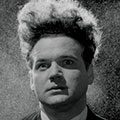The online education provider Masterclass has just announced that it has (somehow) convinced German filmmaker Werner Herzog to create a five-hour video seminar series on filmmaking. You can pre-enroll for the course now to get early access for US$90, which sounds pretty reasonable for five hours of listening to Herzog speak in his amazing German accent. I’ll definitely be signing up.
I can’t even imagine what he’ll be talking about, but if it’s anything like his list of advice for filmmakers it’s going to be amazing.
Werner Herzog’s Advice for Filmmakers
1. Always take the initiative.
2. There is nothing wrong with spending a night in jail if it means getting the shot you need.
3. Send out all your dogs and one might return with prey.
4. Never wallow in your troubles; despair must be kept private and brief.
5. Learn to live with your mistakes.
6. Expand your knowledge and understanding of music and literature, old and modern.
7. That roll of unexposed celluloid you have in your hand might be the last in existence, so do something impressive with it.
8. There is never an excuse not to finish a film.
9. Carry bolt cutters everywhere.
10. Thwart institutional cowardice.
11. Ask for forgiveness, not permission.
12. Take your fate into your own hands.
13. Learn to read the inner essence of a landscape.
14. Ignite the fire within and explore unknown territory.
15. Walk straight ahead, never detour.
16. Manoeuvre and mislead, but always deliver.
17. Don’t be fearful of rejection.
18. Develop your own voice.
19. Day one is the point of no return.
20. A badge of honor is to fail a film theory class.
21. Chance is the lifeblood of cinema.
22. Guerrilla tactics are best.
23. Take revenge if need be.
24. Get used to the bear behind you.
